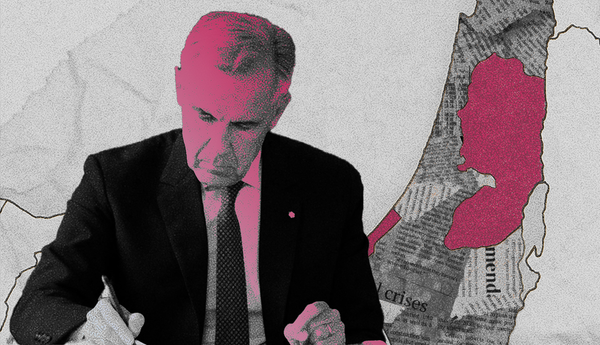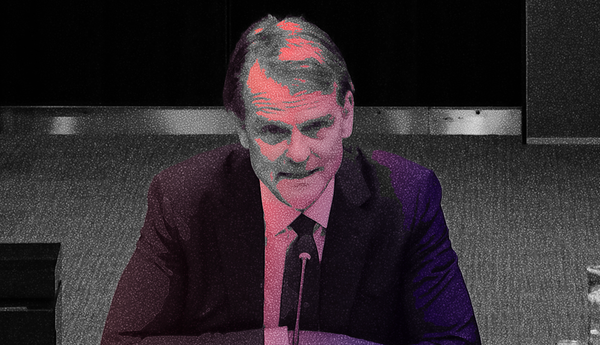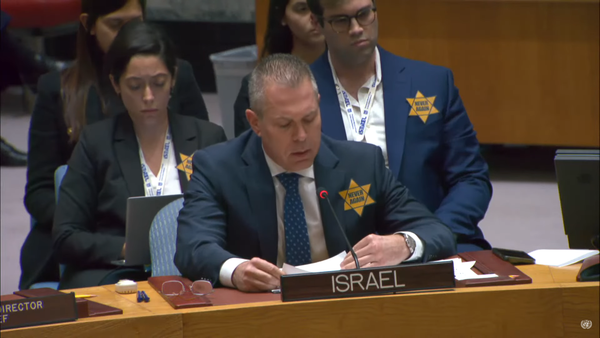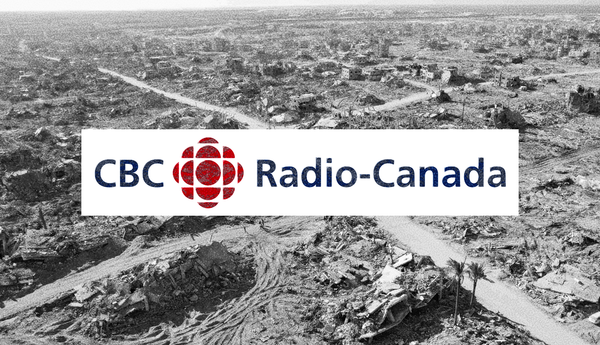Some people believe you shouldn’t speak ill of the dead. Others say you can, but not too soon. My rule is that when it comes to public figures with influence, criticizing them the day they die is justified, and often preferable.
I view post-mortem legacies like concrete, in that there’s a limited time before they dry up, no longer likely to be altered. I won’t be able to revise how the late journalist Christie Blatchford’s legacy settles, but I’d like to at least try to scratch in a few words before it does.
I won’t go into every detail of Blatchford’s career, as I assume you’ve read many of them already. The National Post, the Globe and Mail and the Toronto Star alone have published more than 20 articles about Blatchford since her death. Meanwhile, powerful figures at all levels in Canada have gone out of their way to release some sort of statement, including, but not limited to: Prime Minister Justin Trudeau; Governor General Julie Payette; Ontario Premier Doug Ford, and former premiers Kathleen Wynne and Bob Rae; Ontario NDP leader Andrea Horwath; Conservative Party leader Andrew Scheer; Toronto Mayor John Tory; Toronto Police Chief Mark Saunders; the Canadian Army, their commander and the Royal Canadian Military Institute; several current and former members of parliament, including Erin O’Toole, Maxime Bernier, Peter MacKay and Bill Morneau.
These statements include words such as “iconic,” “trailblazer,” “courageous” and “feisty.” Tory went so far as to say, “Today, we are all mourning the death of Christie Blatchford.” If Tory bothered to look beyond corporate media publications, politicians and the Twitter accounts of prominent journalists, he’d know he was wrong. We are not all mourning.
Glen Canning, the father of Rehtaeh Parsons, a victim of an alleged sexual assault that Blatchford reported on, wrote, “Three weeks after Rehtaeh’s death, Blatchford wrote an article that reads like it was written by the cop who fucked her case up. Rehtaeh died under a mountain of victim blaming and slut shaming. Three weeks after we laid her to rest it happened all over again, thanks to Christie Blatchford.”
Writer Anthony Oliveira said, “Many writers sabotaged the progress of queer rights in Canada, but most did so with a mask of dispassion and indifference. Christie Blatchford did it with cruelty, contempt, and open, malicious ridicule of the most vulnerable and exposed.”
University of Toronto professor Rinaldo Walcott wrote, “I have nothing nice or good to say about her anti-Black racism, her hatred of queer people and her shilling for the most extreme forms of white supremacy.”
Comedian and writer Ryan McMahon said, “In death we lose the physical presence of a person, often their spirit lingers and can be felt long after their body succumbs. The spirit [Christie Blatchford] leaves behind won’t be missed by me and many other Indigenous folks. May that spirit travel quickly & leave no trace.”
Unlike much of the parade of platitude-spouting mourners, the statements above come from people focusing on Blatchford’s actual record.
Here are just a few examples of Blatchford’s work, for which, according to Toronto Life, she was paid $250,000 in 2011 and likely more in the years to follow.
Blatchford’s writing was often accused of being anti-Indigenous.
In 2010, Blatchford wrote a series of articles for the Globe about a family from Caledonia, Ont., filing a lawsuit against the government’s handling of the land dispute in 2006. Indigenous policy and politics professor Hayden King wrote in Media Indigena that these articles “bludgeoned readers with hyperbole and sensationalism” and “pitted faceless native thugs against a decent, law-abiding, salt-of-the-earth Canadian couple.”
King characterized the narrative in these articles as “savages circle the wagons while innocent homesteaders valiantly fight against overwhelming odds when, at the last minute, the cavalry arrives to vanquish the heathen warriors. But in this case, they don’t show up (or so Blatchford claims) and the noble frontiersmen and women suffer all manner of horrors at the hands of their terrorizers.”
Later that year, Blatchford published “Helpless: Caledonia’s Nightmare of Fear and Anarchy, and How the Law Failed All of Us,” a book based on this reporting. In November 2010, Blatchford’s planned appearance at the University of Waterloo to discuss the book was cancelled after protesters occupied the stage, accusing her of racism. Blatchford later told the press, “If it had been my university, I would have had the police remove them from the stage.”
In 2012, Blatchford wrote that “aboriginal culture” is “broken” and “pathologically ill.” That same month, she claimed she was tempted to see then-Attawapiskat Chief Theresa Spence’s hunger strike as a form of “intimidation, if not terrorism.” Blatchford added that “all around [Spence], the inevitable cycle of hideous puffery and horse manure that usually accompanies native protests swirls.”
Blatchford also was frequently accused of homophobia.
In her December 2011 article “Toronto, City of Sissies,” Blatchford wrote, “In Toronto, actual education routinely takes a back seat to anti-bullying messages, gay-positive education, recognition assemblies and social justice.” She claimed, “I am wearying of men who are so frequently in touch with their feminine side they, not to mention me, have lost sight of the masculine one.” She also stated, “It is possible to be a gentle and kind man without speaking in a soft, sibilant voice that makes all sentences sound to my ear as though they were composed entirely of Ss.”
In April 2018, Blatchford wrote a positive article about John Carpay, the president of a legal group who compared the rainbow flag to a swastika — though he later apologized — and said the flag can be a threat to our “fundamental freedoms.” Adding on to her praise of Carpay, Blatchford wrote, “Where once, it seemed that all the gay community wanted was equality … now, those who don’t embrace the full spectrum of gay and transgender life are often silenced, usually through government instrument or policy. And the community that once wanted only to be included is sometimes less than inclusive itself.”
Blatchford also was accused of demonizing Muslims.
In June 2006, writing about a group of men accused of plotting a terror attack, Blatchford said, “Even before I knew for sure that they’re all Muslims, I suspected as much from what I saw on the tube, perhaps because I am a trained observer, or you know, because I have eyes. The accused men are mostly young and mostly bearded in the Taliban fashion. They have first names like Mohamed, middle names like Mohamed and last names like Mohamed. Some of their female relatives at the Brampton courthouse who were there in their support wore black head-to-toe burkas (now there’s a sight to gladden the Canadian female heart: homegrown burka-wearers darting about just as they do in Afghanistan), which is not a getup I have ever seen on anyone but Muslim women.”
She also mocked Toronto police for expressing concern about a mosque’s windows being broken in a hate crime, writing, “Thank God: Windows everywhere in Canada’s largest city are safe, especially windows in mosques. The war on windows will be won, whatever the cost.”
That same year, Blatchford travelled to Afghanistan to embed with the Canadian military. Writer Michael Clark, responding to Blatchford’s book on her time in the country, wrote in Quill & Quire that “there is danger in her utter bias toward the soldiers, and by implication her total acceptance of Canadian policy in Afghanistan. Some readers will lap up her writing as objective fact, and not as the adorations of an infatuated reporter.” In Briarpatch, writer Anthony Fenton called her work “embedded puff journalism” that played a significant role in Canadian media glamorizing destructive foreign policy missions.
Finally, Blatchford’s reporting on sexual assault cases also received a great deal of criticism. A particularly disturbing example comes in the aforementioned Parsons case.
Rehtaeh Parsons, a teenager from Nova Scotia, said she was raped in November 2011 by several teenagers at a party. In the days after, a photo taken of her during the incident was spread widely, eventually leading her parents to contact the police. After a year-long investigation that was heavily criticized, the RCMP announced no charges would be laid. A few months later, Parsons died after attempting suicide. Then, a month after, Blatchford swooped in and wrote about the incident.
Citing an unnamed source, Blatchford claimed there was serious reason to believe the alleged rape was actually consensual sex. Of the photo taken and spread, Blatchford said it “shows virtually nothing that would stand up in court.” Two men eventually pled guilty to charges of making child pornography in relation to the photo in question.
In a blog post published after Blatchford’s death, Parsons’ father Glen Canning wrote, “The fallout from [Blatchford’s article] was devastating and it’s something I still have to deal with every time Rehtaeh’s name comes up in the news. ‘Did you read this… Rehtaeh was a liar, … she cried rape because she was embarrassed, … your daughter was a slut… good parenting… read this article by Blatchford. Rehtaeh wasn’t raped!’ To this day that shit happens, thanks to Christie Blatchford.”
Canning added, “Blatchford would take your side so long as your side had police officers on it and they knew it. Someone within the Halifax Police Department called her and spoon fed her the story of Rehtaeh they wanted written and she wrote it for them. She wrote if for them with no thought at all of who this was going to hurt or the lasting damage such a biased story would produce.”
This stands in stark contrast to the headline for the Post’s official Blatchford obituary, which claimed she was a “tenacious voice for victims.”
These examples aren’t conclusive. They also aren’t cherry picked quotes from a nearly 50-year career, which some people could — wrongly, without a doubt — write off as just a mistake. Instead, these examples are emblematic of Blatchford’s overall body of work; they’re things she was likely proud of writing.
None of this is a secret. Blatchford used the platform she was given throughout her career — during which she worked for the Globe, then the Star, then the Toronto Sun, then the Post, then the Globe again, and finally the Post — to blast out these sorts of opinions to Canadians on a regular basis.
With that in mind, it’s disturbing to read so much praise of Blatchford from those in power across the political spectrum. However, the reaction to her death among journalists has been even worse.
As to why, let’s start with the assumption that Blatchford’s death was newsworthy, something editors must have believed given the endless newspaper, magazine, radio and television coverage. I don’t believe the idea that journalists should be “objective,” but most of the people in this industry do — at least when it comes time to explain why they’ve given a platform to the far-right, climate deniers or fringe cult groups. With this in mind, journalists have done an awful job covering Blatchford’s death.
Countless journalists have proven themselves unable to report adequately on the issue, according to their own standards they’d apply elsewhere, by gushing about Blatchford online. Obviously the deep and meaningful personal relationships they supposedly had with her prevent them from writing “objectively” about her legacy.
A properly written article about Blatchford would include quotes from those negatively impacted by her life’s work. Meanwhile, a newspaper’s opinion section could be expected to run at least one critical article of her. And yet, what I’ve seen thus far has been unanimously positive, despite all of the voices out there with something else to say.
Of course, some journalists have invoked the “too soon” rule to explain why this is the case. But here’s the thing: this implies critical articles will eventually be published when the appropriate amount of time has passed, though no one ever specifies when that should be. The promise rarely pans out. We’re going to be left with a trove of articles whitewashing Blatchford’s legacy, with no chance for anyone in the corporate media to say anything else.
Journalists publicly mourning Blatchford are also doing a disservice to their readers. Have they ever considered what praising a journalist accused of using her platform to spread hate will signal to the sort of reader she targeted? Sure, journalists are allowed to feel bad for Blatchford, especially if they knew her, but why the need to do so publicly?
And then, of course, there’s the unavoidable reality that Canadian media is incestuous. What does it say that journalists are — if they even disagree — willing to overlook Blatchford’s views because she sent them a nice email occasionally? Why should readers care if she bought them dinner once, as if that excuses her track record?
There’s a certain level of camaraderie between many journalists possible only due to the societal advantages they hold. They can write off Blatchford’s hate-fuelled rants as just being “controversial” because this is an academic exercise to them. At the end of the day, they could go get drunk with Blatchford and others in the white-dominated media landscape, putting aside their ostensible differences. And yet, for many of the sort of people targeted by Blatchford, this wasn’t a realistic option.
In the hours and days after Blatchford’s death, several media people in private message groups I’m part of offered their real thoughts of her, but noted they felt they couldn’t share them publicly, or even “like” posts that did. Their colleagues were able to blab about Blatchford at will, yet anyone with anything remotely critical to say seemed concerned by the sort of backlash they felt they’d face from their employers or the public. And so, you had a group of mostly marginalized journalists feeling like they were forced to shut up and watch as their colleagues celebrated a woman who spent her career attacking people like them.
Shortly after Blatchford’s death, Asmaa Malik, a journalism professor at Ryerson, wrote, “It’s hard to see so much unadulterated praise for Christie Blatchford in spite of her constant punching down. J-school students, read the obits and read her work. Draw your own conclusions and pay attention to how journalists in Cdn newsrooms are framing her legacy.”
I imagine this experience has been difficult for marginalized students in journalism school, seeing an entire industry they want to join celebrating someone like Blatchford. If that doesn’t make them want to change their mind about the industry, it effectively teaches them from a young age to shut up while the white journalism elite are talking, or else.
I often think about what it would take to reform corporate Canadian media. The most important step would be a change in ownership, of course, but that’s unlikely. Barring that, a re-examination of who is given one of the limited columnist slots at major newspapers is a necessity.
Many current columnists should have been stripped of the position years ago, especially considering how much they’re paid. Blatchford, who worked as a columnist in some capacity since around 1975, was one of them. Canadian journalism is better off without her. It will only get better when others like Blatchford leave the industry as well, although I obviously only want that to happen through retirement or dismissal, and wish harm on no one.
But, the question then becomes who replaces Blatchford or others like her? If the wave of mourning tweets from journalists was genuine, and we really take them at their word, we should be concerned.
We have a generation of journalists who regard Blatchford as “everything you could ask for,” a “hero” and a “role model.” We can say goodbye to Blatchford, but her toxic brand of journalism lives on.







